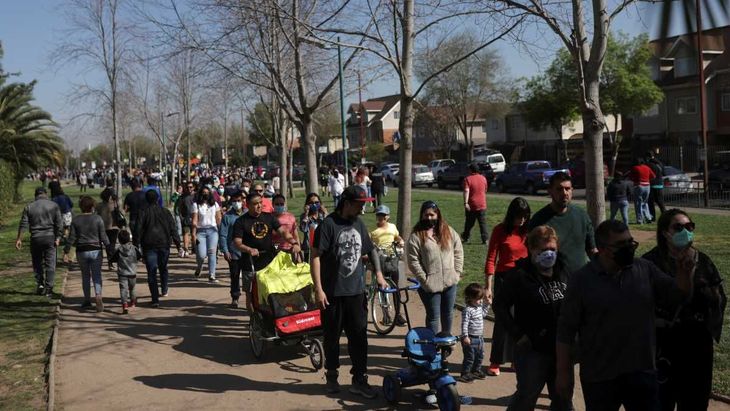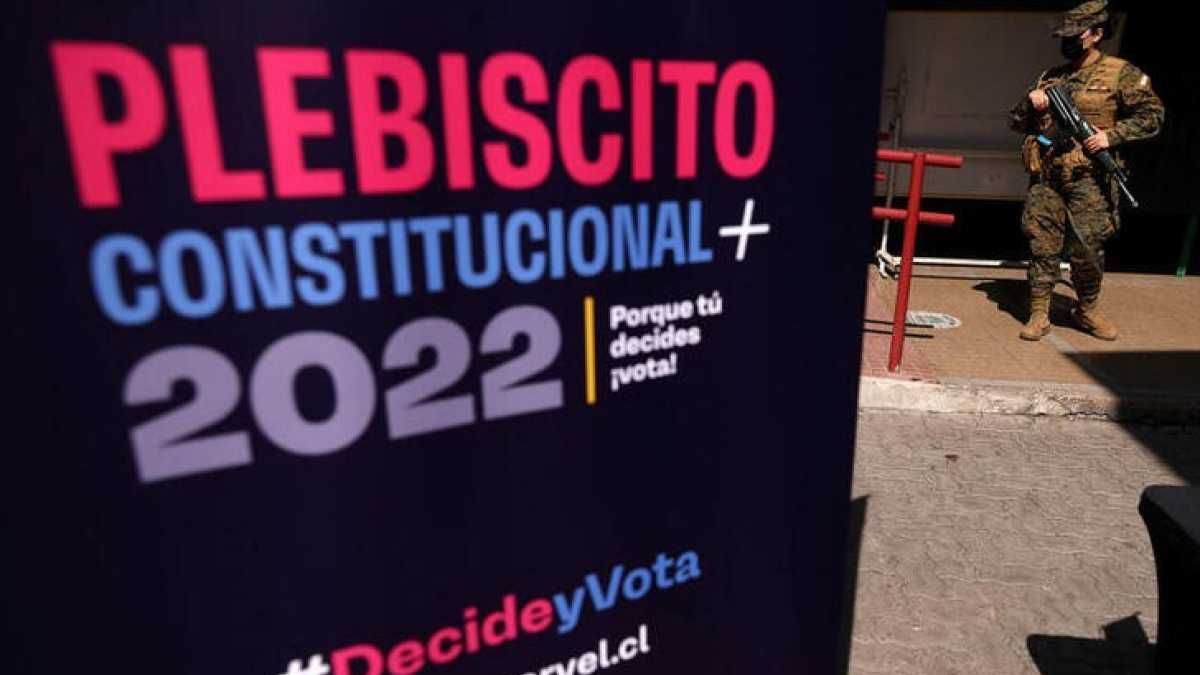Meanwhile, in most of the places, already closed the urns, The countdown began loudly.
As is tradition in Chili, the authorities of the tables count the votes in front of the public and the media, which generates celebrations from the people present every time a vote is counted for their option.
“We have a positive balance, not only because of participation, but because of how our institutions are working”said the minister spokesperson for the Government, Camila Vallejo, in the Palacio de La Moneda before the tables close.
New Constitution
The new text, 178 pages long and produced over a year by a Constitutional Convention, enshrines a “Social State of Rights”, in response to claims expressed in the massive social demonstrations of October 2019.
The project enshrines indigenous plurinationality and establishes a new catalog of social rights in health, abortion, education and pensionswith a marked environmental emphasis and the protection of new rights, although it maintains the market economy.
“Voting today is more important than ever, all I want is for the fights and divisions to end,” Soledad Romero, 34, told AFP after casting her vote at a school in downtown Santiago, about the climate. heated atmosphere surrounding this vote.
The same desire of Elecier Adaos, a 75-year-old retiree, who voted in a school in the commune of San Bernardo, in the south of Santiago: “I hope that after this vote there will be no more conflict. Whoever wins, don’t come back from the conflict. They were very violent in the last few days.”
Chilean plebiscite 2 1200 NA.jpg
latest polls
The “Rejection” option of the new Constitution has led all the polls for more than a month, but the “Approve” campaign mobilized crowds, especially in Santiago, fueling the illusion of victory.
The president of Chile, Gabriel Boric, assured that whatever the result of the plebiscite, he will call for “national unity” in an exercise with “more democracy” to overcome social fractures, he said when voting to applause in his hometown of Punta Arenas, extreme star of Chile.
the former president Michelle Bachelet, very popular in this country, said that if the Rejection option wins as the polls anticipate, “the demands of the Chileans are not going to be satisfied” and a new process should be called. The former president voted in Geneva, Switzerland, where she has just left her position as United Nations High Commissioner for Human Rights.
The closing acts of the campaign on Thursday in the capital of this country of almost 20 million inhabitants, gave two very different photos that contrast with the forecasts.
The “Apruebo” street party gathered between 250,000 and 500,000 people, according to the organizers, while the “Rechazo” closing ceremony consisted of an event of no more than 400 people in an amphitheater in Santiago.
“What is seen in the polls is confirmed, that the advantage of ‘Approve’ in Santiago is going to be very important over rejection,” says sociologist Marta Lagosfounder of the pollster Mori.
“But that does not mean that the ‘I Approve’ is going to win (… well) it has a great disadvantage in the south and north of the country”, areas who suffer from violence and insecurity, adds Lagos.
While in the south there are conflicts over land claimed by Mapuche indigenous groups, in the north there is an incessant influx of undocumented immigrants who live on the streets and which has generated the appearance of mafias of human traffickers and violent crimes.
“Around here, people go more for the rejection (…) they believe that it is the best way, because they are afraid of changes. They have to eat, they have work and they think that they are going to lose it,” Alfredo tells AFP Tolosa, a 47-year-old worker at a lumber company in Tucapel, a town of 13,000 inhabitants in the Biobío region (south).
chile plebiscite 1200 NA.jpg

The lines at one of the voting tables in Santiago de Chile.
Argentine News
Compulsory attendance
For the first time in more than a decade, attendance at the polls is mandatory under penalty of a maximum fine of 180,000 pesos (about $200). That, along with youth turnout, could tip the balance among the more than 15 million voters.
The massive closing ceremony of “‘Apruebo’ confirmed that many young people are going to vote, especially in the Metropolitan region, and that these young people favor the Approve,” said Lagos.
Experts expected the participation of more than 11 million peoplewell above the 8.3 million who voted in December, when Gabriel Boric won the presidential election, in what is already anticipated as a “participatory revolution.”
In the extreme north of the country, in the city of Arica, “the new generations are more for ‘I approve’ and want changes (…) the difference is generational,” estimates Aníbal González, 55, owner of a breeding farm pigs.
Source: Ambito
David William is a talented author who has made a name for himself in the world of writing. He is a professional author who writes on a wide range of topics, from general interest to opinion news. David is currently working as a writer at 24 hours worlds where he brings his unique perspective and in-depth research to his articles, making them both informative and engaging.




